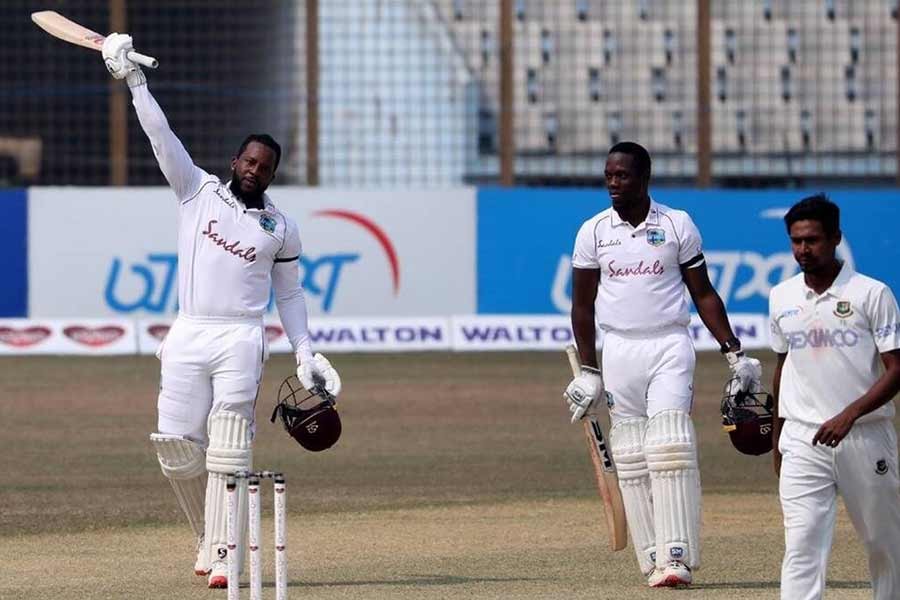The unexpected loss of the Bangladesh cricket team to the visiting West Indies in Chittagong on Sunday in the first Test shocked the home team's ardent supporters no doubt, and yet once again brought to the fore the glorious uncertainties of the great game. The defeat of the home team cast a spell of gloom over the cricket-loving country, although at the same time gave the organisers here reasons and issues to deal with in the immediate aftermath as also in the long-term. When Bangladesh declared its second innings Saturday shortly before the tea interval, they were reasonably poised, they thought, with a good score to defend over a day and a session plus some half-an-hour. However, a dogged West Indies propelled by a valiant debutant, who was supported by his partners eager to erase the memory of the three-nil loss in the one-day series previously, were deserving winners at the end. Apart from giving enough hints of a resurging Windies in the coming days, it also made clear that even while not playing at full strength, they were not to be taken lightly. That the game's regulators in Bangladesh were serious enough in the immediate aftermath is borne by news emanating Monday night from the Bangladesh Cricket Board that its President was holding hours of closed-door meeting with selectors, groundsmen, and the CEO.
Why the match turned upside down from a position of strength for the home team is a question that is solely for Bangladesh Cricket Board to find out and fix future safeguards. That their star performer Sakib Al-Hasan pulled out of the Test midway because of a hamstring is pointed out as one reason. Besides, the impetuous urgency that had apparently gripped the home side's batsmen on the field-- captain Mominul Haque with a century and Liton Das also shaping up for a ton-- before declaration on the penultimate afternoon was unexplainable. Teams normally declare from a position of strength, one which opponents cannot overtake. Sadly, this was not the case on Saturday. Innumerable instances are there in Test cricket when 395 runs have been scored over four plus sessions. Besides Sakib, the home team also lacked the services of a fully effective Mustafizur Rahman, the lone paceman, who had two warnings in the first innings for stepping into the pitch often. He therefore appeared more concerned with his feet than with the salvos that his hands can deliver. Sakib has now been ruled out of the second Test for continuation of the same injury; and one can only hope and wait if Mustafiz can rectify his delivery defects in the few hours available before the second test. However, people can also question the depth that the home perennially suffer from. These are issues that the Bangladesh Board will find keeping them busy in the coming months.
All these are not posed to take away the visitors' great achievement in transforming a situation of defeat to a victory they will long relish. They have some particularly good players worthy of mention, batsmen, pacers and spinners even at a truncated strength. Kyle Meyers set a unique batting record by becoming the first debutant in the Test cricket history to score a double century in the fourth innings of a match. Also, captain Brathwaite, Campbell, Blackwood and Da Silva are hard nuts to crack. It is no doubt the story of a single Test. And it is only a game. However, games have become not only a thing to be seen on the field and then forgotten. They have become now-a-days priorities for economists also because of their money-spinning capability. Many lives depend on them. Especially, in this country, as also elsewhere in the subcontinent and in the West Indies, cricket with its related economic activity is a matter of livelihood for so many hundreds and thousands. It is too important a topic to be taken lightly. Good luck to all in the second test in Dhaka.


